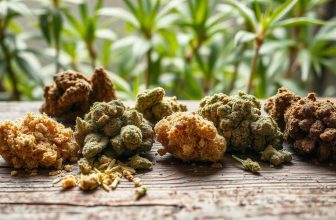Since the 2018 Farm Bill, there has been an increase in the consumption of CBD for both recreational and health purposes. You may come across CBD vendors online or buy off-the-shelf in your local supermarket. Suppose you’re thinking about growing your own cannabis plant; here’s what you need to know!
Is It Legal To Grow Marijuana In the US?
According to federal laws, it is illegal to consume CBD with more than 0.3% THC in the United States. Generally, in most US states, you have to be at least 21 years to be able to legally consume Marijuana. In addition, some state laws require that you possess not more than one ounce of CBD on your person.
Based on the US marijuana cultivation laws, you can grow above 12 cannabis plants in your home residence. In Alaska, the state law allows you to grow up to 25 plants of cannabis for recreational use in your home residence. Meanwhile, in California, adults above the age of 21 can only grow 6 cannabis plants for recreational and medicinal use.
Is It Legal To Grow CBD Hemp In The US?
Although the federal US legislation allows the growing of hemp plants, hemp growing is still prohibited in some states. Hemp contains trace amounts of marijuana, and it doesn’t cause any intoxicating high. The main compound in hemp is CBD which is known for its potential health benefits.
By 2020, industrial hemp cultivation will be legal in all 50 states in the United States. But since this legislation applies to commercial hemp, many people wonder if it’s safe to grow hemp at home. Ideally, it’s legal to grow hemp in your private residence, providing the crop contains 0.3% THC and you’re 21 years or above.
What is the Farm Bill 2018?
Since the 20th century, cannabis has been classified as an illegal substance within the US until the 2018 Farm Bill. The legislation made provisions concerning the use and cultivation of agricultural and nutritional compounds, including cannabis. It also defines hemp as the cannabis Sativa plant, which contains no more than 0.3% of THC.
Additionally, the farm bill makes provisions for the legal cultivation of cannabis (hemp plant) in all 50 states. It separates hemp from other compounds in the cannabis plant like Marijuana which is potent in THC. Despite the provisions of the Farm Bill legislation, CBD buying and selling is not legal in all states.
Requirements To Grow CBD Plants As Farmers
The 2018 Farm Bill reclassified CBD as a legal substance, and it is now legal to grow hemp crops containing 0.3% THC. However, the laws governing the cultivation of hemp in the US are different in every state. First off, anyone growing hemp for industrial or personal use must be at least 21 years of age.
In addition, eligible hemp growers must be following USDA, state, and tribal plans. The Farm Bill also requires that farmers must apply for a license before they can legally grow hemp crops, and the plant must contain a maximum of 0.3%. Without a license, you’ll be breaking the law if you try to grow your own industrial hemp plant.
Can You Grow CBD Plants At Home?
CBD, also Cannabidiol, is among the several compounds that are found in the cannabis Sativa (hemp) plant. Although the 2018 Farm Bill allows the cultivation of industrial cannabis for various purposes, it doesn’t talk about growing CBD plants at home. Despite this lack of provision, you may be tempted to grow CBD flowers at home.
It is important to check individual state laws to confirm that Cannabis cultivation is allowed. For instance, in states like Georgia that do not tolerate hemp farming, it would be classified as the same offense as planting Marijuana. However, Alaska allows adult growers to farm a maximum of 25 cannabis plants per residence.
Conclusion
Since the passing of the Farm Bill in 2018, cannabis farming has grown into a highly profitable industry. However, before you can grow CBD plants for commercial or personal purposes, there are requirements to be met. Now, you can begin to research the status of hemp and CBD in your state so you can grow your own CBD plant. Please, find here the best CBD websites in the US.
Follow us on 
Join the Community
Don't miss any news with our newsletter





